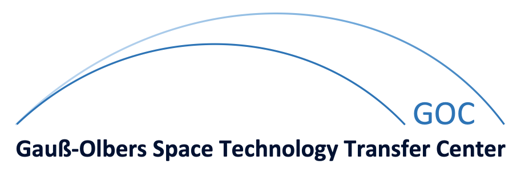6G-Access, Network of Networks, Automation & Simplification (6G-ANNA)
|
Teilprojekt: |
 |
Initial Situation
Innovative communications systems are key technologies for digitization and pave the way for a hyperconnected economy and society. The future mobile communications standard 6G will play an important role in this. Before market launch, which is expected around 2030, numerous technological and social issues still need to be resolved. It is already clear that simplified interaction between people and technology will be central to the development of 6G. Crucial to a functioning, hyperconnected world in which "everything interacts with everything" are powerful, trustworthy and sustainable 6G systems that take into account the European Union's principles of action and values from the ground up. In international competition, it is therefore important for Germany to drive forward 6G research early and quickly in order to be able to exert a significant influence on the standardization of 6G.
Objective
6G-ANNA aims to provide a holistic system approach for 6G mobile radio systems. The aim is to develop an overarching understanding of how future requirements on the user side can be addressed with technological innovations. This deep understanding of the requirements, the exploration of the technological concepts as well as the pre-competitive consensus building form the basis for German and European companies to take a leading role in the later standardization and market introduction.
Research Contribution of the University of Bremen
In 6G-ANNA, the University of Bremen addresses two: distributed interference estimation in 6G wide area networks with in-X networks and relevance-based signal processing for cell-free massive MIMO. In centralized interference estimation, the challenge is that 6G networks may consist of complex subnetworks that are not fully centrally controlled. The detection of the interference situation over a mobile cell has to be distributed by terminals and reported to the base station. The focus of this sub-project is therefore AI or machine learning methods for the design, learning and application of a distributed interference estimation procedure. For uplink signal processing of cell-free massive MIMO, the challenge is to transmit and process the raw data multiple radio units that dynamically form the cell for a user and are processed centrally. Therefore, the focus is on relevance-based signal processing algorithms to achieve optimal end-to-end transmission for variable and different fronthauls (e.g. wireless fronhaul, moving RU). Hybrid methods are used that combine classical message engineering methods with machine learning methods to achieve flexible trade-offs between complexity and performance.
Further Information
Details
| Duration: | 07/2022 - 06/2025 |
| Funding: | Federal Ministry of Education and Research |
| Research Focus: |
Communications - special topics
Offical Activities |
| Precursor: | Open6GHub (6G for Society and Sustainability) |
Publications

-
Extreme Value Theory-based Predictive Interference Management for 6G Subnetworks with Transformer
BibTEX

P. Gautam, C. Bockelmann, A. Dekorsy
IEEE International Conference on Communications (ICC), Montreal, Canada, Canada, 11. June 2025 -
Deep Learning-Based Distributed Remote Source Coding via Information Bottleneck Method: The Parallel Processing Scheme
BibTEX

S. Hassanpour, M. Hummert, D. Wübben, A. Dekorsy
IEEE International Conference on Communications Workshops (ICC Workshops 2025), Montreal, Canada, 8. - 12. June 2025 -
A Deep Variational Approach to Multiterminal Joint Source-Channel Coding Based on Information Bottleneck Principle
BibTEX

S. Hassanpour, M. Hummert, D. Wübben, A. Dekorsy
IEEE Open Journal of the Communications Society (OJ-COMS), Vol. 6, pp. 4462-4475, May 2025, DOI -
Relevance-Based Multi-User Data Compression for Fronthaul Rate Reduction in Cell-Free Massive MIMO Systems
BibTEX

A. Danaee, S. Hassanpour, D. Wübben, A. Dekorsy
International ITG Conference on Systems, Communications and Coding (SCC 2025), Karlsruhe, Germany, 10. - 13. March 2025, DOI -
Probabilistic Interference Prediction for Dynamic 6G In-X Sub-networks
BibTEX
P. Gautam, C. Bockelmann, A. Dekorsy
under review of IEEE Open Journal of the Communications Society (OJ-COMS), January 2025 -
German Perspective on 6G – Use Cases, Technical Building Blocks and Requirements
BibTEX

D. Wübben, M. Rihan, P. Gautam, A. Dekorsy, N. Franchi, F. Dressler
FAU University Press, FAU Studien aus der Elektrotechnik, Vol. 28, Erlangen, Germany, 19. December 2024, ISBN 978-3-96147-797-5, DOI -
SINR Sequence Compression and Quantization with VQ-VAE Method
BibTEX

L. Zhu, C. Bockelmann, A. Dekorsy
2024 IEEE Global Communications Conference (GLOBECOM) , South Africa, 8. - 12. December 2024 -
Dynamic Interference Prediction for In-X 6G Sub-networks
BibTEX
P. Gautam, C. Bockelmann, A. Dekorsy, Ravi Sharan B A G,Paolo Baracca,Thorsten Wild
SCC 2025, 8. - 12. December 2024 -
Multi-Source Distributed Data Compression Based on Information Bottleneck Principle
BibTEX

S. Hassanpour, A. Danaee, D. Wübben, A. Dekorsy
IEEE Open Journal of the Communications Society (OJ-COMS), Vol. 5, pp. 4171-4185, July 2024, DOI -
Relevance-Based Information Processing for Fronthaul Rate Reduction in Cell-Free Massive MIMO Systems
BibTEX

A. Danaee, S. Hassanpour, D. Wübben, A. Dekorsy
International Symposium on Wireless Communication Systems (ISWCS 2024), Rio de Janeiro, Brazil, 14. - 17. July 2024, DOI








